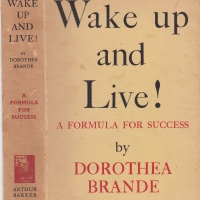Women “yatter and chatter” while “men talk“, wrote Scottish poet Liz Lochhead, making gender distinctions in communication long before the invention of the term ‘mansplaining’.
In Sarah Polley‘s movie, set in 2010, the women talkers are members of a closed religious community whose place and name is never specified. What we do know is that they have been kept as chattels, denied education and subjected to nightly rapes after being drugged. The traumatized victims are of all ages and they are left bloodied, bruised and, in many cases, pregnant.
Fleeing would seem to be the obvious choice but ,as a menacing sister superior Scarface Janz (Frances McDormand) reminds them, to leave would also mean renouncing their faith. In other words, they are damned to hell if they go, damned to a life of violent subjugation if they stay. Talk about a rock and a hard place!
The men are all the more scary for being an unseen prescence. The only adult male character is one of the good guys .School teacher August (Ben Whishaw) is tasked with taking the minutes at an emergency meeting. In a race against time,the women have a 24-hour window to decide their own fate while their attackers are away defending their actions to the authorities.
The women may be illiterate but they are highly articulate. Those who advocate taking an axe to their abusers sum up the level of anger but others suggest a less violent alternative. At no point do we get the impression that any help will come from beyond their isolated community.
August appears to represent what men might become if educated and sensitised to the needs and rights of women. When accused of forcing the debate or speaking out of turn, he apologizes profusely and tearfully. His feminised masculinity is a stark contrast to the animalistic behavior of his peers.
A caption at the start of the movie identifies it as “a work of female imagination.” It is based on a 2018 novel of the same name by Miriam Toews which is described as a “fictional reaction” to real-life events that occurred in a Mennonite community in Bolivia.
Any cinematic ‘realism’ stems from the fact that the plight of these women has parallels with the rise in abusive relationships in western society. Their isolation and suffering is also commonplace in societies where female opression is sanctioned by the church and/or state.
The film is a parable designed to stimulate debate about what kind of world might be possible if men listened more and women were able to gather and talk freely without fear for their lives. Fiction doesn’t get any more speculative than this.














